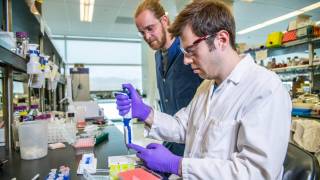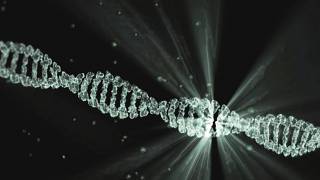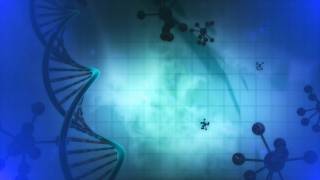Florida Startup Developing Herpes Vaccine

A Florida startup biotechnology company developing vaccines previously announced during July 2019 a herpes vaccine candidate was in pre-clinical, guinea pig model testing phase.
And, the Excell Biotech website says ‘We hope to publish preclinical data (regarding the EXD-12 vaccine) by year-end 2019.’
This is potentially good news since there is not an approved herpes vaccine available in the USA. But, as of December 12th, the company has not issued a status update.
Furthermore, Excell’s website says the ‘EXD-12 is a live attenuated vaccine candidate currently in preclinical testing for safety and efficacy as both a prophylactic and therapeutic vaccine for Herpes Simplex Virus-1 (HSV-1) and Herpes Simplex Virus-2 (HSV-2).’
Excell continues saying ‘We have produced Herpes Simplex Virus (HSV) particles and used transmission electron microscopy to confirm that they are intact and devoid of other contaminating viruses.”
‘The absence of contaminating viruses was further proven by Polymerase Chain Reaction testing.’
‘We have added layers of safety-switches in order to make our live attenuated herpes virus the safest “living” virus to date.’
‘Previous herpes vaccine studies have shown that in the production process, self rescuant viruses can arise and become wild-type.’
‘While research groups have used different safety switches individually, we combine at least 4 different layers that guarantee that no infectious virus can arise.’
Excell’s vaccine development strategy is focused on innovative research.
To protect that innovation, Excell filed a provisional patent application with the United States Patent and Trademark office for their EXD-12 HSV vaccine candidate on September 14th, 2018.
‘New data indicates that glycoprotein D acts as a decoy, so the immune system is not able to form an effective antibody response to other antigens. Without glycoprotein D, herpes becomes visible to the immune system and is also unable to spread between cells.’
A separate, unrelated study published online during October 2019, adds further context to this scientific finding.
This study published in Science Direct says ‘viral glycosylation has been investigated in the context of a number of envelope glycoproteins, including the envelope glycoprotein of human immunodeficiency virus-1 and envelope glycoprotein of dengue, Zika, and other flaviviruses.’
‘However, glycosylation on viruses is not limited to envelope glycoproteins.’
‘Many secreted viral proteins present glycans that are necessary for their respective functions, such as the secreted glycoprotein G of herpes simplex virus.’
This study’s findings indicate ‘a better understanding of viral glycobiology will provide further opportunities to rationally develop novel therapeutics and vaccines.’
Recent herpes vaccine news
- Cornell Researchers Found ‘What’ Switches Herpesviruses On
- Herpes Vaccine ‘Prime & Pull’ Approaches Are Popular
Herpes is a common sexually transmitted disease that any sexually active person can get. Most people with the virus don’t have symptoms. Even without signs of the disease, herpes can still be spread to sex partners, says the CDC.
Several clinical trials have tested vaccine candidates against genital herpes infection, but there is currently no commercially available vaccine that is protective against genital herpes infection.
Previously, on August 9, 2019, the herpes simplex virus 2 HSV529 vaccine candidate was found safe and elicited neutralizing antibody and modest CD4+ T-cell responses in 60 HSV-seronegative adult male/female vaccinees in a phase 1 clinical study.
And, University of Pennsylvania researchers announced in September 2019, a trivalent nucleoside-modified mRNA-LNP vaccine is a promising candidate in an animal study, and is ‘ready for human trials.’
Without a preventive vaccine available, millions of herpes infected patients can only treat their symptoms with antiviral medications, which can generally shorten a herpes outbreak.
Randomized trials have indicated that 3 antiviral medications provide clinical benefit for genital herpes: acyclovir, valacyclovir, and famciclovir, says the CDC.
Valacyclovir is the valine ester of acyclovir and has enhanced absorption after oral administration. Famciclovir also has high oral bioavailability.
And, these antiviral medications make it less likely that you will spread herpes to a sex partner but do not cure the infection.
Furthermore, taken daily, these medications can also reduce the number of recurrences and decrease viral shedding, says the CDC.
And the CDC says ‘topical therapy with antiviral drugs offers minimal clinical benefit and is discouraged.’
Herpes antiviral medications are available at most pharmacies in the USA.
Herpes vaccine news is published by Precision Vaccinations.
Our Trust Standards: Medical Advisory Committee

























